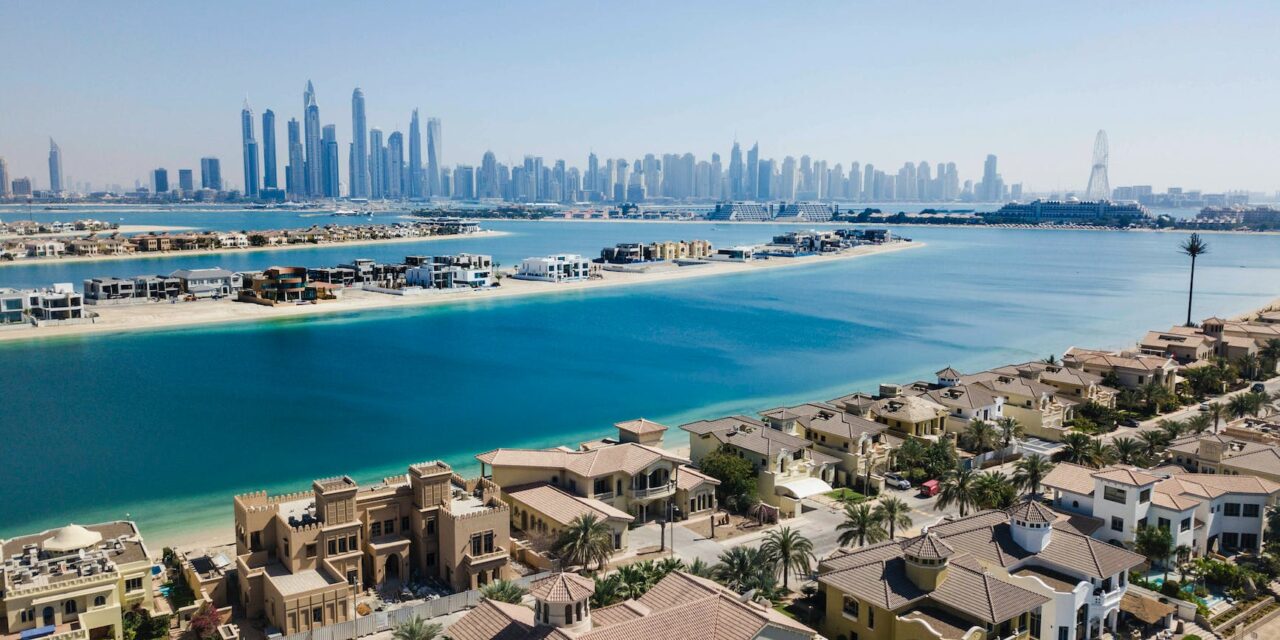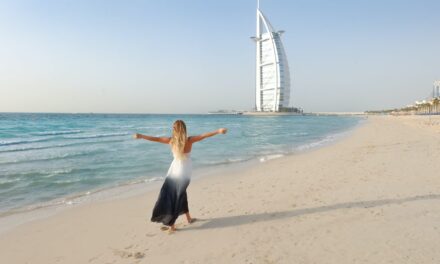Investing in the tourism industry in Dubai can be a lucrative opportunity for those looking to expand their portfolio. The city is known for its luxurious amenities and attractions that draw in millions of visitors each year. From world-renowned shopping centers to breathtaking architecture, Dubai has something to offer for every type of traveler.
- The Appeal of Dubai as a Tourist Destination
- Investing in Dubai’s Tourism Industry
- The Impact of the Pandemic on Tourism
- The Role of Tourism in Dubai’s Economy
- Sustainable Tourism in Dubai
- Dubai’s Tourism Infrastructure
- The Global Perspective on Dubai’s Tourism
- Frequently Asked Questions
- What are the benefits of investing in the tourism industry in Dubai?
- How does Dubai generate income from tourism?
- Which nationality visits Dubai the most?
- What is the number of tourists visiting UAE each year?
- What are the negative impacts of tourism in Dubai?
- How has tourism helped the economy of Dubai?
In recent years, Dubai has made significant investments in the development of its tourism industry, resulting in a steady increase in revenue. The city has become a hub for business and leisure travel, with a variety of accommodations and activities available for visitors. The tourism industry in Dubai has also contributed to the growth of other sectors, such as retail and hospitality, creating a ripple effect throughout the local economy.
Overall, the tourism industry in Dubai presents a promising opportunity for those interested in investing in a thriving market. With its impressive development and revenue growth, it’s no wonder why the city has become a top destination for travelers from all over the world.
The Appeal of Dubai as a Tourist Destination

Dubai has emerged as one of the top tourist destinations in the world, attracting millions of visitors every year. Its luxurious amenities and unique attractions make it a popular choice for travelers seeking a one-of-a-kind experience. This section will explore what makes Dubai such an appealing destination for tourists.
Luxurious Amenities
Dubai is known for its opulent hotels, world-class shopping centers, and extravagant restaurants. The city boasts some of the most luxurious accommodations in the world, including the iconic Burj Al Arab, which is often referred to as the world’s only seven-star hotel. Visitors can indulge in spa treatments, gourmet dining, and other lavish amenities during their stay.
In addition to its luxurious accommodations, Dubai is also home to some of the world’s most impressive shopping centers. The Dubai Mall, for example, is the largest mall in the world and features over 1,200 stores, an indoor theme park, and an aquarium. Visitors can also explore the city’s many souks, or traditional markets, which offer a unique shopping experience.
Unique Attractions
Dubai is home to a wide range of unique attractions that set it apart from other tourist destinations. One of the most popular attractions is the Burj Khalifa, the world’s tallest building. Visitors can take an elevator to the top of the building and enjoy panoramic views of the city.
Another popular attraction is the Dubai Miracle Garden, which features over 45 million flowers arranged in stunning displays. The city is also home to several theme parks, including Dubai Parks and Resorts, which features three separate theme parks and a water park.
Dubai is also known for its iconic landmarks, such as the Palm Jumeirah, an artificial island that is shaped like a palm tree. Visitors can take a boat tour of the island and enjoy views of the city’s skyline.
In conclusion, Dubai’s luxurious amenities and unique attractions make it a popular choice for tourists seeking a one-of-a-kind experience. Its opulent hotels, world-class shopping centers, and extravagant restaurants provide visitors with a taste of luxury, while its unique attractions offer a glimpse into the city’s culture and history.
Investing in Dubai’s Tourism Industry
Dubai’s tourism industry has been growing at an impressive rate in recent years. With a wide range of attractions and luxurious amenities, it’s no surprise that investing in the tourism industry in Dubai can be a profitable venture. In this section, we’ll take a closer look at the tourism business model in Dubai and the potential revenue streams that investors can tap into.
Understanding the Tourism Business Model
The tourism business model in Dubai is based on a combination of government and private sector investments. The government has invested heavily in infrastructure, including airports, roads, and public transportation, to make the city easily accessible for tourists. The private sector, on the other hand, has invested in hotels, resorts, theme parks, and other attractions to create a world-class tourism experience.
Investors looking to invest in Dubai’s tourism industry should understand the different segments of the market. These include:
- Leisure tourism: This segment includes visitors who come to Dubai for vacation or leisure activities.
- Business tourism: This segment includes visitors who come to Dubai for conferences, meetings, or other business-related activities.
- Medical tourism: This segment includes visitors who come to Dubai for medical treatment.
Investors should also consider the seasonality of the tourism industry in Dubai. The peak season is from November to April, while the low season is from May to October. This should be factored into any investment decisions.
Potential Revenue Streams
Investors in Dubai’s tourism industry can tap into several potential revenue streams. These include:
- Hotel and resort revenues: Dubai has a wide range of hotels and resorts, ranging from budget to luxury. Investors can earn revenue from room bookings, food and beverage sales, and other hotel services.
- Theme park revenues: Dubai has several theme parks, including the famous Dubai Parks and Resorts. Investors can earn revenue from ticket sales, food and beverage sales, and other theme park services.
- Tour and excursion revenues: Dubai has a wide range of tours and excursions available for tourists, including desert safaris, city tours, and water sports. Investors can earn revenue from tour and excursion bookings.
Investors should also consider the potential risks of investing in Dubai’s tourism industry. These include geopolitical risks, economic risks, and natural disasters. However, with proper due diligence and risk management, investing in Dubai’s tourism industry can be a lucrative opportunity.
Overall, Dubai’s tourism industry offers a range of investment opportunities for investors looking to tap into a growing market. By understanding the tourism business model and potential revenue streams, investors can make informed investment decisions and potentially earn significant returns.
The Impact of the Pandemic on Tourism
Travel Restrictions and Their Effects
The COVID-19 pandemic has had a significant impact on the tourism industry worldwide, and Dubai is no exception. The pandemic led to travel restrictions and border closures, which caused a sharp decline in tourism. According to the United Nations World Tourism Organization (UNWTO), tourist arrivals are estimated to have fallen 74 percent in 2020 compared to 2019.
Dubai, which is known for its luxurious amenities and attractions, has been greatly affected by the pandemic. The city’s tourism sector, which is a significant contributor to the economy, has experienced a significant decline in revenue. The pandemic’s impact has been felt across the industry, from hotels to airlines, and has led to job losses and business closures.
The Industry’s Response to the Pandemic
The tourism industry in Dubai has responded to the pandemic by implementing measures to ensure the safety of tourists and residents. The government has implemented strict protocols for hotels, restaurants, and other tourism-related businesses to follow. These protocols include mandatory mask-wearing, social distancing, and regular sanitation.
Dubai has also launched various initiatives to support the tourism industry during the pandemic. The government has provided financial assistance to businesses affected by the pandemic and has waived certain fees and taxes. Additionally, the city has launched marketing campaigns to promote domestic tourism and attract tourists from neighboring countries.
Despite the negative impacts of the pandemic, Dubai’s tourism industry is showing signs of recovery. According to the latest World Tourism Barometer, global travel activity rebounded sharply in the third quarter of 2021, while remaining far below pre-pandemic levels. International tourist arrivals increased by 58 percent in the three months ended September 30 compared to the same period of 2020 but remained 64 percent below 2019 levels.
In conclusion, the pandemic has had a significant impact on the tourism industry in Dubai. However, the industry has responded by implementing measures to ensure the safety of tourists and residents and launching initiatives to support the industry. While the industry is still recovering, there are signs of improvement, and investing in the tourism industry in Dubai can still be a profitable venture.
The Role of Tourism in Dubai’s Economy
Dubai’s tourism industry has been a key driver of economic growth for the emirate. With its many attractions and luxurious amenities, investing in the tourism industry in Dubai can be a profitable venture. This section will examine the role of tourism in Dubai’s economy, with a focus on job creation and its contribution to economic growth.
Job Creation
Dubai’s tourism industry has been a major source of job creation in the emirate. According to a report by Dubai Economy and Tourism, the tourism industry generated 570,000 jobs in 2019, accounting for 11.5% of total employment in Dubai. The report also notes that the tourism industry has been a key driver of job creation for Emiratis, with Emirati nationals accounting for 8.5% of total employment in the industry.
Contribution to Economic Growth
Dubai’s tourism industry has also been a significant contributor to economic growth in the emirate. The industry generated AED 152.3 billion in revenue in 2019, accounting for 11.5% of Dubai’s GDP. According to the same report by Dubai Economy and Tourism, the industry’s contribution to Dubai’s GDP is expected to reach 14.2% by 2026.
Dubai’s tourism industry has also been instrumental in diversifying the emirate’s economy. While oil remains an important sector for the emirate, the government has been working to diversify the economy and reduce its reliance on oil. The tourism industry has been a key part of this diversification strategy, contributing to the growth of other sectors such as retail, hospitality, and transportation.
In conclusion, Dubai’s tourism industry has played a significant role in driving economic growth and job creation in the emirate. With its many attractions and luxurious amenities, the industry is poised for continued growth and is an attractive investment opportunity for those looking to invest in Dubai’s economy.
Sustainable Tourism in Dubai
Dubai is a city that is known for its luxurious amenities and world-renowned attractions. However, the city is also committed to promoting sustainability in its tourism industry. By investing in sustainable tourism, Dubai is not only protecting the environment but also contributing to the sustainable development of the region.
Promoting Sustainability
Dubai’s Department of Tourism and Commerce Marketing (Dubai Tourism) has launched several initiatives to promote sustainable tourism. One such initiative is the “Get into the Green Scene” campaign, which encourages hotels and other tourism-related businesses to adopt sustainable practices. The campaign provides businesses with guidelines and support to help them reduce their carbon footprint and promote sustainable tourism.
Dubai is surrounded by world-famous hiking trails, particularly in Hatta, which is a perfect way to bask in the stunning nature outside the city and enjoy an entirely sustainable day out. The city also boasts several eco-tourism attractions, cultural pursuits, and sustainable restaurateurs.
The Role of Tourism in Sustainable Development
Sustainable tourism can enable Dubai to successfully build this sector in a manner that fosters an increase in visitors and a diversified economy while promoting regional culture and being attentive to the impact of tourism on the environment. Dubai’s commitment to sustainable tourism is not only beneficial for the environment but also for the local economy. By promoting sustainable tourism, Dubai is attracting visitors who are seeking authentic local experiences and are willing to pay a premium for sustainable tourism experiences.
In conclusion, investing in sustainable tourism in Dubai can be a profitable venture. By promoting sustainable tourism, Dubai is not only protecting the environment but also contributing to the sustainable development of the region. The city’s initiatives to promote sustainable tourism are a step in the right direction, and they are sure to attract visitors who are seeking authentic local experiences while also being environmentally conscious.
Dubai’s Tourism Infrastructure
Dubai’s tourism industry has been thriving for years, thanks to its world-class infrastructure that caters to the needs of millions of visitors every year. The emirate has a wide range of accommodation options and excellent transportation networks that make it easy for tourists to explore the city and its surroundings.
Accommodation Options
Dubai has a diverse range of accommodation options that cater to every budget and preference. From luxury hotels to budget-friendly hostels, visitors can choose from a variety of options. The city is home to some of the world’s most luxurious hotels, including the iconic Burj Al Arab, the world’s only seven-star hotel. Other high-end options include the Atlantis, The Palm, and the Armani Hotel Dubai.
For budget-conscious travelers, Dubai has a range of affordable hotels and hostels. These include the Rove Hotels chain, which offers affordable accommodation in convenient locations across the city. Visitors can also opt for short-term rentals through platforms like Airbnb.
Transportation Networks
Dubai’s transportation infrastructure is efficient and well-developed, making it easy for tourists to get around the city and beyond. The city has an extensive metro system that connects major tourist attractions and commercial areas. The Dubai Metro is clean, safe, and reliable, with air-conditioned carriages and free Wi-Fi.
For those who prefer to travel by road, Dubai has a well-maintained network of highways and roads. Taxis and ride-hailing services like Uber and Careem are widely available, making it easy for tourists to get around the city. Visitors can also rent cars from international car rental companies like Hertz and Avis.
In conclusion, Dubai’s tourism infrastructure is world-class and well-equipped to cater to the needs of millions of visitors every year. With a range of accommodation options and efficient transportation networks, Dubai is an ideal destination for tourists looking for a luxurious and hassle-free vacation.
The Global Perspective on Dubai’s Tourism
International Arrivals
Dubai has become one of the world’s most popular tourist destinations, attracting millions of visitors from around the globe. According to the United Nations World Tourism Organization (UNWTO), Dubai welcomed 7.28 million international overnight visitors in 2021, representing a 32% YoY growth. This growth is a testament to Dubai’s efforts to establish itself as a leading tourism destination in the world.
Dubai’s popularity among international visitors can be attributed to its luxurious amenities, world-renowned attractions, and excellent infrastructure. The city boasts of several attractions such as the world’s tallest building, the Burj Khalifa, the Palm Jumeirah, and the Dubai Fountain, among others. Additionally, Dubai has excellent shopping, dining, and entertainment options that cater to visitors from all walks of life.
Dubai in the Global Tourism Landscape
Dubai’s tourism industry has come a long way in the last few decades. In the 1980s, the city was little more than a backwater tribal settlement, dependent on pearl fishing, trade, and limited oil reserves. However, the city has since transformed into a futuristic city-state, rapidly expanding its global outreach and undertaking a range of high-profile development projects and acquisitions.
Dubai’s efforts to establish itself as a leading tourism destination have been successful, and the city is now viewed as a significant player in the global tourism industry. According to the UNWTO, Dubai is the seventh most visited city in the world, attracting more visitors than other popular destinations such as New York City, Paris, and Tokyo.
Dubai’s tourism industry has also had a significant impact on the global economy. The city’s success in attracting international visitors has helped create jobs, boost economic growth, and promote cultural exchange. Dubai’s tourism industry has also helped promote the city’s reputation as a global business hub, attracting investors and entrepreneurs from around the world.
In conclusion, Dubai’s tourism industry is a significant player in the global tourism landscape, attracting millions of visitors from around the world. The city’s luxurious amenities, world-renowned attractions, and excellent infrastructure have helped establish it as a leading tourism destination. With its many attractions and luxurious amenities, investing in the tourism industry in Dubai can be a profitable venture.
Frequently Asked Questions
What are the benefits of investing in the tourism industry in Dubai?
Investing in the tourism industry in Dubai can be a profitable venture due to the many attractions and luxurious amenities the city has to offer. Dubai is known for its world-class shopping, fine dining, and luxurious accommodations, which attract millions of tourists every year. Investing in the tourism industry in Dubai can provide investors with a steady stream of income and long-term capital appreciation.
How does Dubai generate income from tourism?
Dubai generates income from tourism through a variety of sources, including hotel and accommodation bookings, food and beverage sales, transportation, and entertainment. The city also earns revenue from tourism-related taxes and fees, such as the Dubai Tourism Dirham and the Value-Added Tax (VAT).
Which nationality visits Dubai the most?
According to the Dubai Department of Tourism and Commerce Marketing, the top five nationalities visiting Dubai in 2020 were India, Saudi Arabia, the United Kingdom, Oman, and China.
What is the number of tourists visiting UAE each year?
In 2019, the number of tourists visiting the UAE reached a record high of 16.73 million, according to the Federal Competitiveness and Statistics Authority. However, due to the COVID-19 pandemic, the number of tourists visiting the UAE declined sharply in 2020.
What are the negative impacts of tourism in Dubai?
While tourism is a major source of income for Dubai, it also has negative impacts on the environment and local communities. The rapid growth of tourism in Dubai has led to increased traffic congestion, air pollution, and strain on natural resources. Additionally, the influx of tourists has led to higher prices for goods and services, making it more difficult for locals to afford basic necessities.
How has tourism helped the economy of Dubai?
Tourism has played a significant role in the growth and development of Dubai’s economy. The city’s tourism industry has created jobs and provided opportunities for local businesses to grow and prosper. Additionally, the revenue generated from tourism has helped fund infrastructure projects and other initiatives aimed at improving the quality of life for residents of Dubai.

























